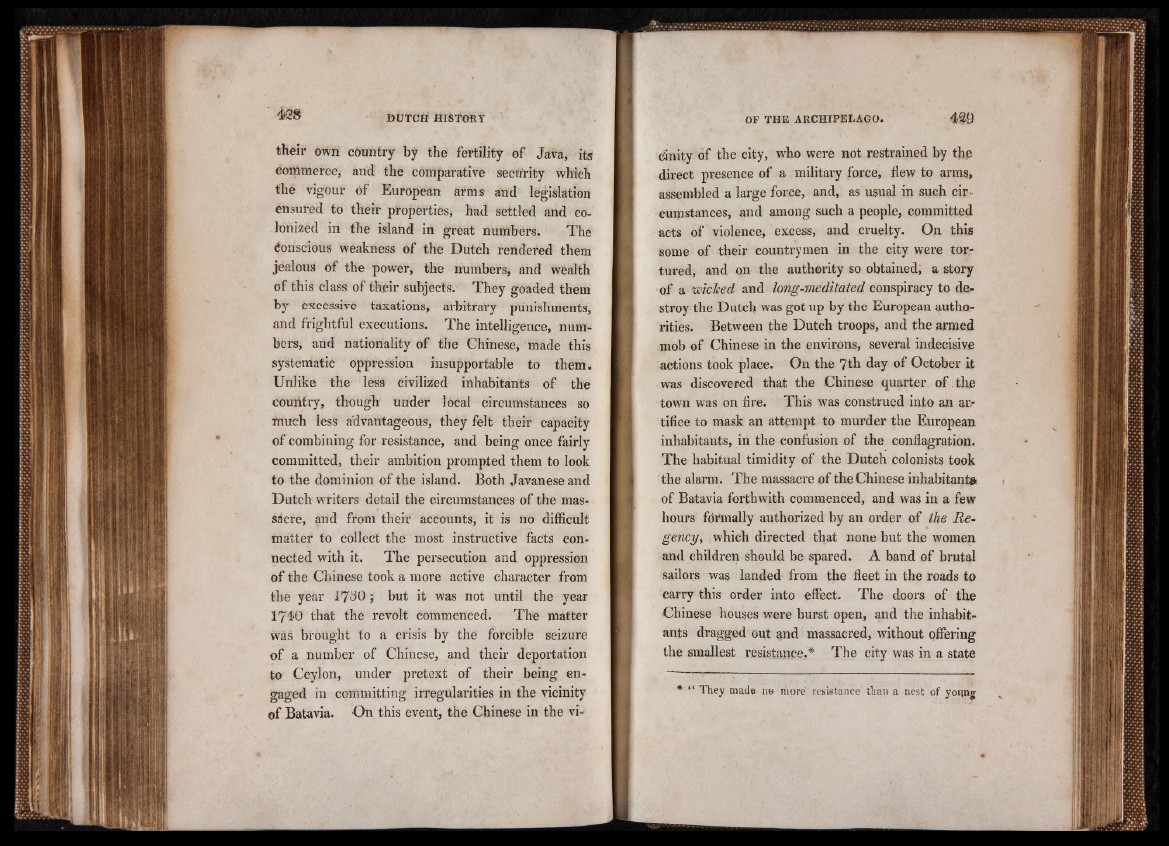
their own country by the fertility of Java, its
commerce, and the comparative security which
thé vigour of European arms and legislation
ensured to their properties* had settled and colonized
in the island in great numbers. The
éonscious weakness of the Dutch rendered them
jealous of the power, the numbers, and wealth
of this class of their subjects. They goaded them
by excessive taxations, arbitrary punishments,
and frightful executions. The intelligence, numbers,
and nationality of the Chinese, made this
systematic oppression insupportable to them.
Unlike the less civilized inhabitants of the
country, though under local circumstances so
much less advantageous, they felt their capacity
of combining for resistance, and being once fairly
committed, their ambition prompted them to look
to the dominion of the island. Both Javanese and
Dutch writers detail the circumstances of the massacre,
and from their accounts, it is no difficult
matter to collect the most instructive facts connected
with it. The persecution and oppression
of the Chinese took a more active character from
the year 1730 ; but it was not until the year
1740 that the revolt commenced. The matter
was brought to a crisis by the forcible seizure
of a number of Chinese, and their deportation
to Ceylon, under pretext of their being engaged
in committing irregularities in the vicinity
of Batavia. On this event, the Chinese in the vi-
Cinity of the city, who were not restrained by the
direct presence of a military force, flew to arms,
assembled a large force, and, as usual in such cir
cumstances, and among such a people, committed
acts of violence, excess, and cruelty. On this
some of their countrymen in the city were tortured,
and on the authority so obtained, a story
of a melted and long-meditated conspiracy to destroy
the Dutch was got up by the European authorities.
Between the Dutch troops, and the armed
mob of Chinese in the environs, several indecisive
actions took place. On the 7 th day of October it
was discovered that the Chinese quarter of . the
town was on fire. This was construed into an artifice
to mask an attempt to murder the European
inhabitants, in the confusion of the conflagration.
The habitual timidity of the Dutch colonists took
the alarm. The massacre of the Chinese inhabitant»
of Batavia forthwith commenced, and was in a few
hours formally authorized by an order of the Regency,
which directed that none but the women
and children should be spared. A band of brutal
sailors was landed from the fleet in the roads to
carry this order into effect. The doors of the
Chinese houses were burst open, and the inhabitants
dragged out and massacred, without offering
the smallest resistance.* The city was in a state
* 4< They made ne more resistance than a nest of young